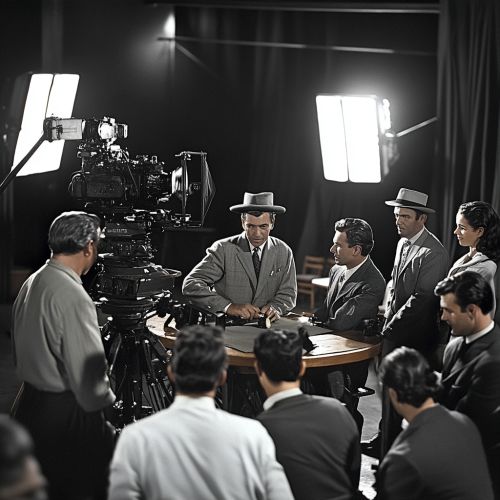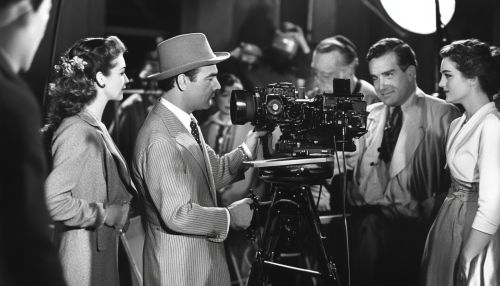Frank Capra
Early Life and Education
Frank Capra, born Francesco Rosario Capra on May 18, 1897, in Bisacquino, Sicily, was an influential Italian-American film director, producer, and writer. His family emigrated to the United States in 1903, settling in Los Angeles, California. Capra's early life was marked by poverty and hardship, which profoundly influenced his later work. He attended Manual Arts High School in Los Angeles and later studied chemical engineering at the California Institute of Technology, graduating in 1918.
Career Beginnings
Capra's entry into the film industry was somewhat serendipitous. After serving in the United States Army during World War I, he struggled to find work in his field and eventually took a job selling books. His break came when he answered a newspaper ad placed by a new film studio, which led to his first job in the industry as a prop man and film cutter for a small San Francisco studio.
Rise to Prominence
Capra's career began to gain momentum when he joined Hal Roach Studios, where he worked on comedy shorts. His big break came when he started working with Harry Cohn at Columbia Pictures in the late 1920s. Capra's collaboration with screenwriter Robert Riskin resulted in a series of successful films that established his reputation. His directorial style, characterized by its focus on the common man and the American Dream, began to take shape during this period.
Major Works and Themes
Capra's films often explored themes of individualism, democracy, and the triumph of the underdog. His most notable works include:
It Happened One Night (1934)
This romantic comedy, starring Clark Gable and Claudette Colbert, was a critical and commercial success. It became the first film to win all five major Academy Awards: Best Picture, Best Director, Best Actor, Best Actress, and Best Adapted Screenplay.
Mr. Deeds Goes to Town (1936)
Starring Gary Cooper and Jean Arthur, this film tells the story of a small-town man who inherits a fortune and moves to the big city, where he faces corruption and greed. The film was praised for its humor and social commentary.
Mr. Smith Goes to Washington (1939)
This political drama, featuring James Stewart as an idealistic young senator, is one of Capra's most enduring works. The film's portrayal of political corruption and the power of individual integrity resonated with audiences and critics alike.
It's a Wonderful Life (1946)
Perhaps Capra's most famous film, this Christmas classic stars James Stewart as George Bailey, a man who contemplates suicide before an angel shows him the impact of his life on others. The film's themes of community, sacrifice, and redemption have made it a perennial favorite.


Technical Innovations and Style
Capra was known for his innovative use of sound and camera techniques. He often employed long takes and deep focus to create a sense of realism and intimacy. His films frequently featured fast-paced, witty dialogue and a blend of humor and drama. Capra's ability to elicit strong performances from his actors and his meticulous attention to detail contributed to his success.
Later Career and Legacy
Capra's career declined in the 1950s as he struggled to adapt to the changing landscape of Hollywood. His later films, such as State of the Union (1948) and Pocketful of Miracles (1961), did not achieve the same level of acclaim as his earlier works. Despite this, Capra's influence on American cinema remains significant. His films continue to be studied for their technical mastery and their exploration of American ideals.
Awards and Honors
Throughout his career, Capra received numerous awards and honors. He won three Academy Awards for Best Director and was nominated for several others. In 1982, he was awarded the American Film Institute's Lifetime Achievement Award. Capra's contributions to the film industry were also recognized with a star on the Hollywood Walk of Fame.
Personal Life
Capra married twice and had four children. His first marriage to actress Helen Howell ended in divorce. He later married Lucille Warner, with whom he remained until his death. Capra was known for his strong work ethic and his dedication to his craft. He was also an avid outdoorsman and enjoyed fishing and hiking.
See Also
- Hollywood Golden Age
- American Film Institute
- Academy Awards
- James Stewart
- Columbia Pictures
- Romantic Comedy
- Political Drama
